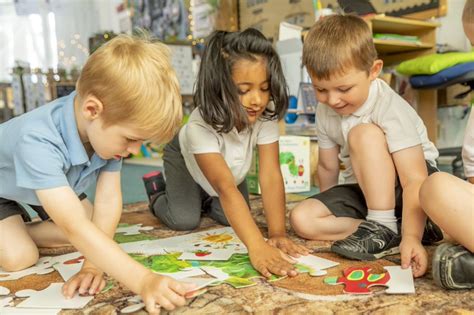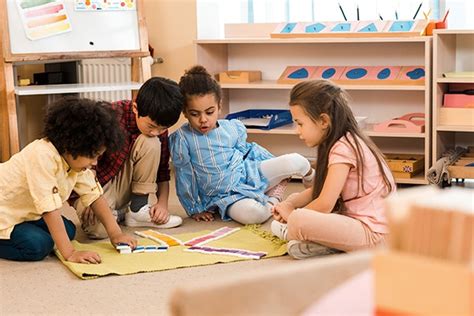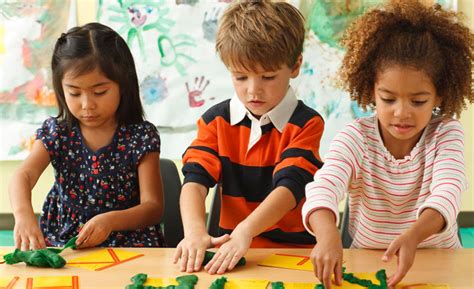Montessori schools have been at the forefront of revolutionizing early childhood education with their unique, child-centered approach. Rooted in the philosophy of fostering independence, creativity, and hands-on learning, Montessori education offers an alternative to traditional methods, emphasizing personalized growth over standardized instruction. This article explores the key insights into Montessori principles, highlighting its benefits for early development, and compares it with conventional school systems. We’ll also examine recent research supporting its effectiveness, share success stories of notable alumni, address criticisms, and delve into future trends shaping the evolution of Montessori education in today’s fast-changing educational landscape.
xotools.xyz will lead a thorough examination of this topic.
1. Overview of Montessori Education Principles and Philosophy
Montessori education is based on the principles developed by Dr. Maria Montessori in the early 20th century. It emphasizes a child-centered approach, where students are encouraged to learn through self-directed activities in an environment that fosters independence, curiosity, and hands-on exploration. Montessori classrooms are designed to give children the freedom to choose from a variety of educational materials, allowing them to work at their own pace and pursue subjects of interest.
One of the core philosophies is the belief in the “absorbent mind,” which posits that children naturally learn from their surroundings and experiences, especially during the early years. This method supports holistic development by nurturing cognitive, social, emotional, and physical growth simultaneously.
In Montessori education, teachers, often referred to as “guides,” act as facilitators rather than directors of the learning process. They carefully observe children’s progress and provide support when necessary, fostering an environment that encourages intrinsic motivation. This approach is founded on deep respect for each child’s unique potential, nurturing creativity, problem-solving skills, and a lasting love for learning. This philosophy starkly contrasts with traditional education systems, which typically emphasize structured instruction and standardized assessments.

2. Benefits of Montessori Education for Early Childhood Development
Montessori education boasts a wealth of benefits for young children, prioritizing the cultivation of independence, critical thinking, and social skills. A standout advantage is its emphasis on self-directed learning. Children are encouraged to select activities that pique their interest, fostering deeper engagement and a stronger grasp of concepts. This autonomy cultivates self-assurance and a sense of responsibility, crucial components for lifelong learning.
Furthermore, Montessori classrooms emphasize multi-sensory learning through engaging materials that encourage exploration and hands-on experimentation. This approach caters to diverse learning styles, fostering cognitive development, creativity, and problem-solving abilities.
Montessori education fosters social development by prioritizing collaboration and respect. Children learn to work together, share resources, and communicate effectively, developing vital interpersonal skills. The mixed-age classroom structure further enhances this by encouraging mentorship and empathy, with older children guiding younger ones, enriching the learning process for all.
Research suggests that Montessori education fosters well-rounded individuals. Children educated through this approach frequently exhibit superior academic performance and enhanced emotional regulation compared to their peers who receive traditional education. This underscores the efficacy of the Montessori method in nurturing holistic development.

3. Comparison Between Montessori and Traditional School Systems
Montessori and traditional school systems differ significantly in their approaches to education, philosophy, and classroom environments. In traditional schools, education often follows a structured curriculum where teachers lead lessons, and students are expected to absorb information through lectures and rote memorization. This system typically emphasizes standardized testing and uniformity, often prioritizing academic achievement over individual learning styles.
In contrast, Montessori education adopts a child-centered approach, allowing students to take charge of their learning. Children are encouraged to explore subjects at their own pace, promoting autonomy and fostering a love for learning. The classroom environment is designed to be flexible and inviting, with various hands-on materials that facilitate exploration and discovery.
Another key difference lies in the teacher’s role. In traditional systems, teachers serve primarily as authority figures and information dispensers, while Montessori guides act as facilitators, observing and supporting students’ learning journeys without direct intervention.
Furthermore, Montessori classrooms feature mixed-age groups, encouraging collaboration and mentorship among students, whereas traditional classrooms typically group children by age. This dynamic fosters social skills and emotional intelligence, highlighting the holistic development that Montessori education seeks to achieve.

4. Recent Studies and Data Supporting Montessori Method Effectiveness
Recent studies have increasingly validated the effectiveness of the Montessori method in early childhood education, showcasing its positive impact on various aspects of child development. Research conducted by the American Montessori Society and several universities reveals that children who attend Montessori schools often outperform their peers in traditional educational settings, particularly in areas like reading, mathematics, and social skills.
One significant study published in the journal Science demonstrated that Montessori students exhibited higher academic achievement and greater social-emotional skills compared to those in conventional schools. These findings suggest that the child-centered approach of Montessori education fosters a deeper understanding of concepts and better prepares students for collaborative and independent work.
Additionally, a longitudinal study from the University of Virginia followed Montessori graduates into adolescence, finding that they exhibited more positive academic attitudes and better behavioral skills than their traditionally schooled counterparts.
Furthermore, the emphasis on self-directed learning has been linked to improved problem-solving abilities and creativity, critical attributes in today’s rapidly changing world. Collectively, these studies highlight that the Montessori method not only nurtures academic success but also cultivates well-rounded individuals equipped with essential life skills.
5. Success Stories: Notable Montessori School Alumni
Montessori education has yielded a distinguished roster of alumni who have left their mark on diverse fields. Among them is Google co-founder Larry Page, who cites his Montessori schooling as a factor in his innovative thinking and problem-solving abilities. In a similar vein, renowned musician and artist Alicia Keys attributes her creative spirit and self-reliance to her Montessori background.
Notable examples of individuals who thrived under Montessori principles include Amazon founder Jeff Bezos, who attended a Montessori preschool, and actress and activist Anne Hathaway, who credits self-directed learning as a key factor in her development. These individuals demonstrate how Montessori education can foster critical thinking, creativity, and resilience, shaping successful individuals.
Furthermore, the Montessori method’s efficacy in preparing students for future success has been recognized by numerous leaders in business, science, and the arts. The accomplishments of these individuals serve as a powerful testament to the enduring influence of Montessori education, shaping not only academic performance but also the character and abilities of its students.
6. Challenges and Criticisms of the Montessori Approach
Although the Montessori approach boasts numerous advantages, it’s not immune to challenges and criticism. A major concern is the inconsistency in the quality of Montessori programs. Not all schools strictly adhere to the core principles of Montessori, leading to disparities in the educational experience. Some institutions may label themselves as Montessori without truly implementing the method, resulting in a watered-down version that may fall short of its intended goals.
One criticism leveled at Montessori classrooms is the perceived lack of structure. Critics contend that the focus on self-directed learning could result in knowledge gaps if children are given free rein to pursue their interests without adequate guidance. This is a particular concern for parents who prefer a more traditional approach, where structured lessons and a set curriculum take precedence.
While the mixed-age classroom setting fosters social development, it can also pose challenges for younger children who may find it difficult to keep pace with their older classmates. Concerns have been raised by some educators and parents regarding the preparedness of children for the transition to traditional schools following a Montessori education, particularly in relation to standardized testing.
The effectiveness of the Montessori educational experience can be significantly influenced by the wide range of training and qualifications among teachers. To guarantee a high-quality education that caters to the needs of all students, it is essential that educators possess a thorough grasp of Montessori principles.
7. Future Trends and Innovations in Montessori Education
The future of Montessori education is poised for growth and innovation as it adapts to the evolving landscape of early childhood learning. One significant trend is the integration of technology in Montessori classrooms. While traditional Montessori principles emphasize hands-on learning, educators are finding ways to incorporate digital tools that enhance learning without detracting from the child-centered approach. Interactive apps and online resources can supplement Montessori materials, offering students additional avenues for exploration and creativity.
Another emerging trend is the emphasis on inclusivity and diversity within Montessori education. Schools are increasingly focused on creating environments that reflect and embrace diverse cultures and learning needs. This shift ensures that all children, regardless of background or ability, can thrive in a Montessori setting.
Moreover, a growing number of Montessori schools are incorporating environmental education and sustainability into their curricula. By teaching children about the importance of caring for the planet, these programs not only align with Montessori values but also prepare students to be responsible global citizens.
Finally, as the demand for Montessori education continues to rise, there is an increased emphasis on professional development for educators. Training programs are evolving to ensure that teachers are well-equipped to implement Montessori principles effectively and adapt to the unique needs of their students, promoting a higher standard of education across the board.
Montessori education offers a transformative approach to early childhood learning, fostering independence, creativity, and social skills. As research continues to support its effectiveness, the method is gaining recognition globally. Despite facing challenges, such as variability in program quality and criticisms regarding structure, the future of Montessori education looks promising. By embracing technological innovations, inclusivity, and ongoing teacher development, Montessori schools can continue to adapt and thrive, shaping well-rounded individuals equipped for success in an ever-changing world.
xotools.xyz








